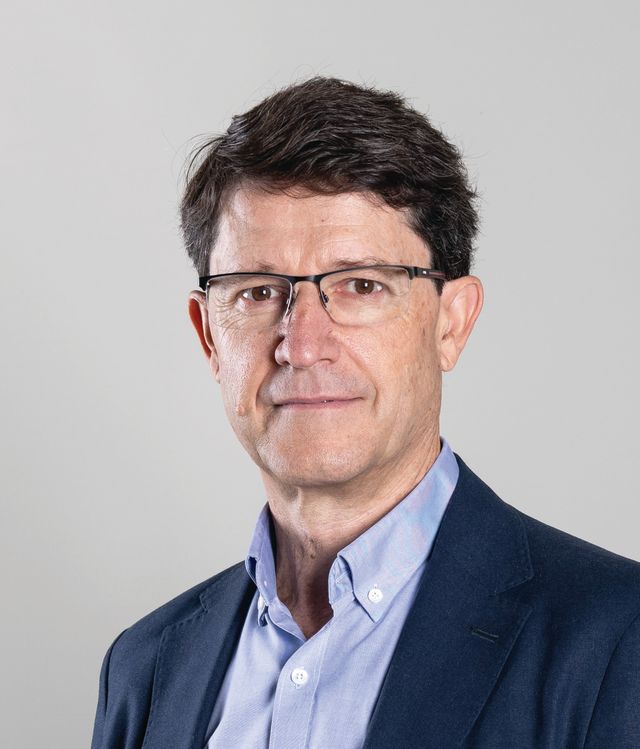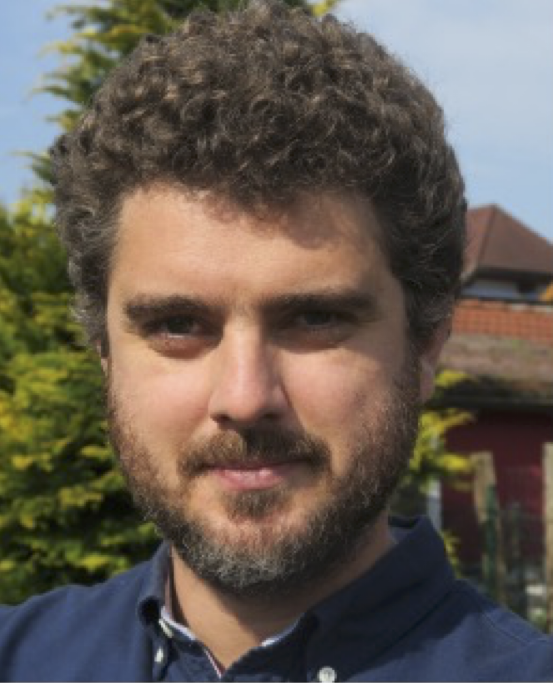
Rosalba Calvini obtained her Ph.D. in Agri-food Sciences, Technologies and Biotechnologies at the University of Modena and Reggio Emilia (Italy) in 2017, defending a thesis entitled “Chemometric tools for food characterisation through RGB and hyperspectral imaging". She has then been post-doctoral researcher at the same institution (2017–2021), working on national and international projects related to the development of analytical methods based on spectroscopy, imaging, and chemometrics for food analysis.
Currently she is researcher in analytical chemistry at the Department of Life Sciences of the University of Modena and Reggio Emilia.
Her research interests encompass the application and development of chemometric algorithms for hyperspectral and digital image analysis, with a focus on variable selection and data dimensionality reduction.
In 2024, she received the Young Researcher Award from the Chemometrics Group of the Analytical Chemistry Division of the Italian Chemical Society.
At CCM2025, Rosalba will deliver a keynote talk entitled "Overcoming the curse of dimensionality in hyperspectral data".
 Elise Dumas is post-doctoral researcher in biostatistics at the École Polytechnique Fédérale de Lausanne (EPFL - Switzerland). Her research focuses on the use of large-scale observational datasets and causal inference methods for medical applications.
Elise Dumas is post-doctoral researcher in biostatistics at the École Polytechnique Fédérale de Lausanne (EPFL - Switzerland). Her research focuses on the use of large-scale observational datasets and causal inference methods for medical applications.
At CCM2025, Elise will deliver a keynote talk entitled "Causal inference: a primer".
 Alberto Ferrer is professor of statistics at the Universitat Politècnica de València (Spain), head of the Multivariate Statistical Engineering Group, chief scientific officer at Kenko Imalytics, S.L., and scientific advisor at Kensight Solutions, S.L. His research mainly focuses on (big) data analytics - especially in the domains of Industry 4.0 and Health 4.0 - industrial statistics, process chemometrics, machine learning, and multivariate statistical approaches for medical image analysis, systems and synthetic biology, omics sciences, fault detection and diagnosis, predictive maintenance, and optimisation.
Alberto Ferrer is professor of statistics at the Universitat Politècnica de València (Spain), head of the Multivariate Statistical Engineering Group, chief scientific officer at Kenko Imalytics, S.L., and scientific advisor at Kensight Solutions, S.L. His research mainly focuses on (big) data analytics - especially in the domains of Industry 4.0 and Health 4.0 - industrial statistics, process chemometrics, machine learning, and multivariate statistical approaches for medical image analysis, systems and synthetic biology, omics sciences, fault detection and diagnosis, predictive maintenance, and optimisation.
At CCM2025, Alberto will deliver a keynote talk entitled "PLS in the digitalized Industry 4.0: exploiting the causality in the latent space".
 Astrid Jourdan is full professor at the Université de Pau et des Pays de l'Adour. She is an expert in statistics, machine learning, and experimental design. Her research mainly focuses on statistical analysis applied to numerical experiments and artificial intelligence. Her research interests include space-filling designs and sensitivity analysis, with applications in industry, environmental sciences, and artificial intelligence.
Astrid Jourdan is full professor at the Université de Pau et des Pays de l'Adour. She is an expert in statistics, machine learning, and experimental design. Her research mainly focuses on statistical analysis applied to numerical experiments and artificial intelligence. Her research interests include space-filling designs and sensitivity analysis, with applications in industry, environmental sciences, and artificial intelligence.
At CCM2025, Astrid will deliver a keynote talk entitled "Space-filling designs for mixture experiments".
 Ramin Nikzad-Langerodi is researcher team leader at the Software Competence Center Hagenberg (SCCH GmbH - Austria). Before joining SCCH, he worked as chemometrician at the Research Center for Non-Destructive Testing (RECENDT GmbH - Austria) and as machine learning researcher at the Department of Knowledge-Based Mathematical Systems of the Johannes Kepler University in Linz (Austria). Ramin Nikzad-Langerodi holds a degree in Biochemistry from the University of Zurich (Switzerland) and a Ph.D. in Pharmaceutical Sciences from the University of Vienna (Austria).
Ramin Nikzad-Langerodi is researcher team leader at the Software Competence Center Hagenberg (SCCH GmbH - Austria). Before joining SCCH, he worked as chemometrician at the Research Center for Non-Destructive Testing (RECENDT GmbH - Austria) and as machine learning researcher at the Department of Knowledge-Based Mathematical Systems of the Johannes Kepler University in Linz (Austria). Ramin Nikzad-Langerodi holds a degree in Biochemistry from the University of Zurich (Switzerland) and a Ph.D. in Pharmaceutical Sciences from the University of Vienna (Austria).
At CCM2025, Ramin will deliver a keynote talk entitled "Two-norm penalties in multivariate calibration: beyond the usual suspects".
 Rodrigo Rocha de Oliveira is lecturer at the Department of Chemical Engineering and Analytical Chemistry of the Universitat de Barcelona (Spain). He obtained his PhD from the same institution, focusing on process data fusion, modelling, and control strategies.
Rodrigo Rocha de Oliveira is lecturer at the Department of Chemical Engineering and Analytical Chemistry of the Universitat de Barcelona (Spain). He obtained his PhD from the same institution, focusing on process data fusion, modelling, and control strategies.
His post-doctoral work, conducted in the Chemometrics Group of the University of Genova (Italy), advanced the analysis of near-infrared chemical images of biological samples and enhanced the understanding of near-infrared radiation interactions with solid matter. His research expertise spans the development and application of chemometric tools for Process Analytical Technology (PAT), with a particular emphasis on spectroscopic sensors and chemical imaging. Recently, he has begun exploring the potential of generative Artificial Intelligence (AI) models to promote developments in chemometrics.
His contributions to the PAT field were recognized with the prestigious Siemens Process Analytics Prize in 2021 for an outstanding publication by a young scientist.
At CCM2025, Rodrigo will deliver a keynote talk entitled "Harnessing the chemical, spatial, and temporal information: from spectral images to process monitoring".








